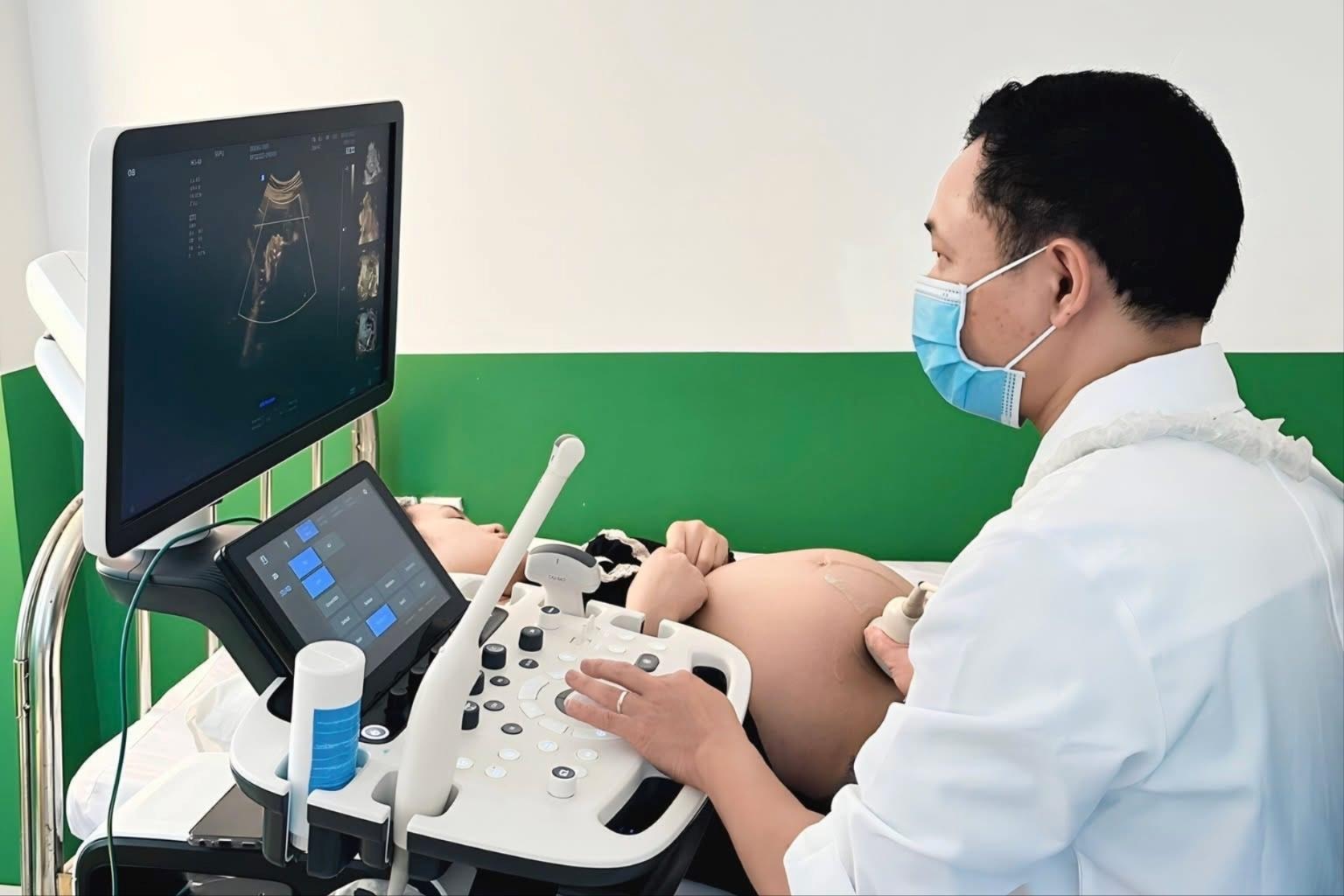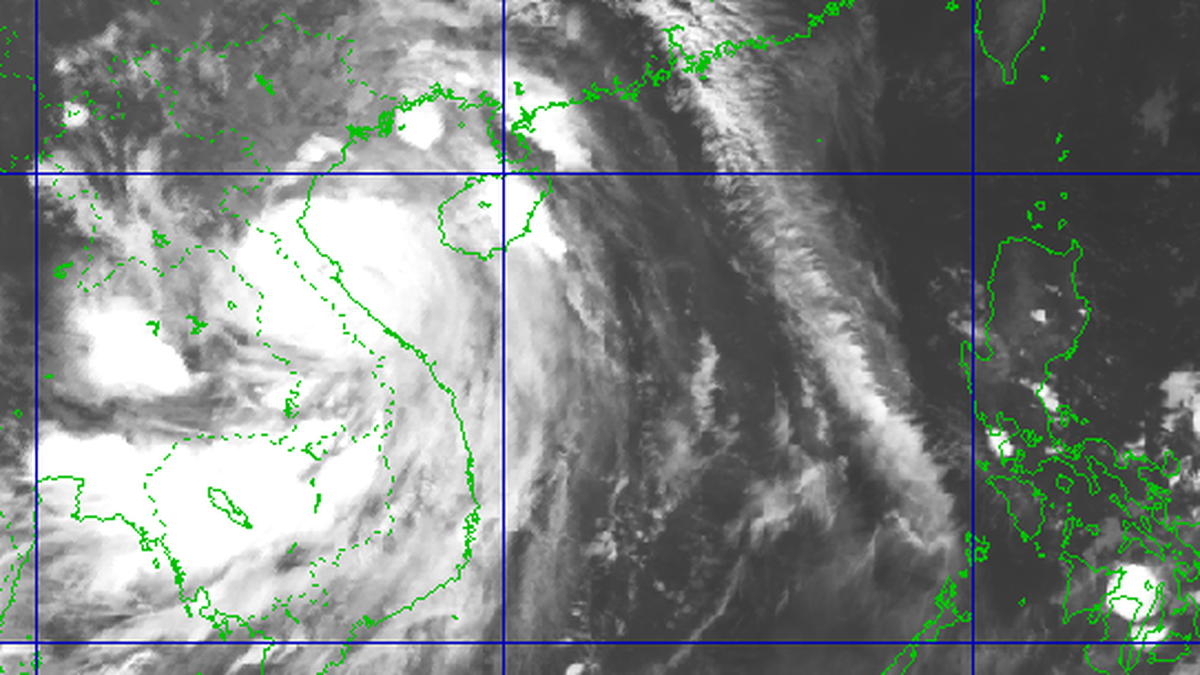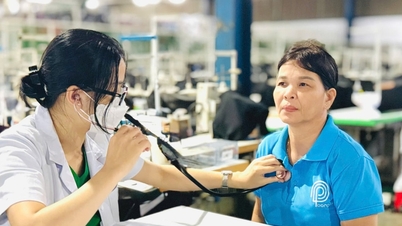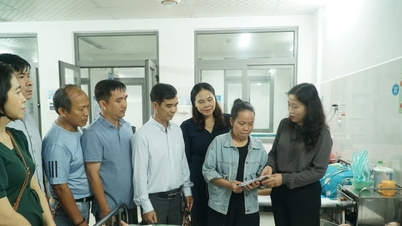
Ms. Huynh Thi Thu Thao (residing in Cam Le ward) shared: “I am 6 weeks pregnant but still wondering whether I should have prenatal screening or not? If so, which week should it be done? Does screening affect the fetus?”.
According to specialist Dr. Truong Huynh Tri, Da Nang Obstetrics and Pediatrics Hospital, prenatal disease screening is important during pregnancy.
Through modern medical techniques, doctors can detect early abnormalities in the number or structure of chromosomes, morphological defects, metabolic disorders or genetic diseases in the fetus. Timely detection helps families have appropriate care and treatment orientation or make humane decisions right from when the baby is still in the womb.
Dr. Tri said that some common techniques in the prenatal screening and diagnosis program include: Screening for Down, Edwards, and Patau syndromes: Performed by ultrasound to measure nuchal translucency and nasal bone from the 11th to 13th week of pregnancy, combined with blood tests (Combine test) or non-invasive screening (NIPT). High-risk cases will be assigned a molecular biological test to determine abnormalities in chromosomes 21, 18, and 13.

Doctors recommend that the ideal time to perform prenatal screening is in the first trimester of pregnancy, from the 11th to 13th week of pregnancy. This is an important stage to help determine the risk of common genetic syndromes as well as early birth defects. After this time, pregnant women still need to be monitored periodically with additional tests throughout the pregnancy.
In particular, pregnant women in high-risk groups such as those with a history of giving birth to a child with birth defects, stillbirth, premature birth, relatives with genetic diseases, pregnancy after the age of 35, and underlying diseases such as diabetes, high blood pressure, infections during pregnancy, etc. need to undergo full, accurate, and timely screening.
Currently, the rate of children with congenital malformations and genetic diseases tends to increase, partly due to environmental impacts, increasing maternal age, unscientific living habits and the increase in underlying diseases in women of childbearing age. Meanwhile, many pregnant women still have concerns, lack of information or are subjective, leading to missing the "golden" time for screening.
Dr. Truong Huynh Tri said: “Thanks to the advancement of modern medicine, the ability to detect abnormalities early in pregnancy is increasingly accurate, safe and minimally invasive. Therefore, pregnant women should proactively have regular prenatal checkups and fully perform prenatal screening steps to ensure a safe pregnancy, healthy birth and comprehensive development of the baby.”
Source: https://baodanang.vn/bao-dam-suc-khoe-cho-tre-khi-chao-doi-3298986.html


![[Photo] Prime Minister Pham Minh Chinh meets with Chairman of the State Duma of the Russian Federation Vyacheslav Volodin](https://vphoto.vietnam.vn/thumb/1200x675/vietnam/resource/IMAGE/2025/9/29/08ca17cb0c46432dbdb94f9eaf73b47a)
![[Photo] General Secretary To Lam receives Chairman of the State Duma of the Russian Federation Vyacheslav Volodin](https://vphoto.vietnam.vn/thumb/1200x675/vietnam/resource/IMAGE/2025/9/29/3814a68959e848f586178624b6bd66e5)


![[Photo] President Luong Cuong receives Chairman of the State Duma of the Russian Federation Vyacheslav Volodin](https://vphoto.vietnam.vn/thumb/1200x675/vietnam/resource/IMAGE/2025/9/29/6bd456e072504df3a468acbf9b7989c8)




























































![[Photo] President Luong Cuong receives Chairman of the State Duma of the Russian Federation Vyacheslav Volodin](https://vphoto.vietnam.vn/thumb/402x226/vietnam/resource/IMAGE/2025/9/29/6bd456e072504df3a468acbf9b7989c8)





























Comment (0)